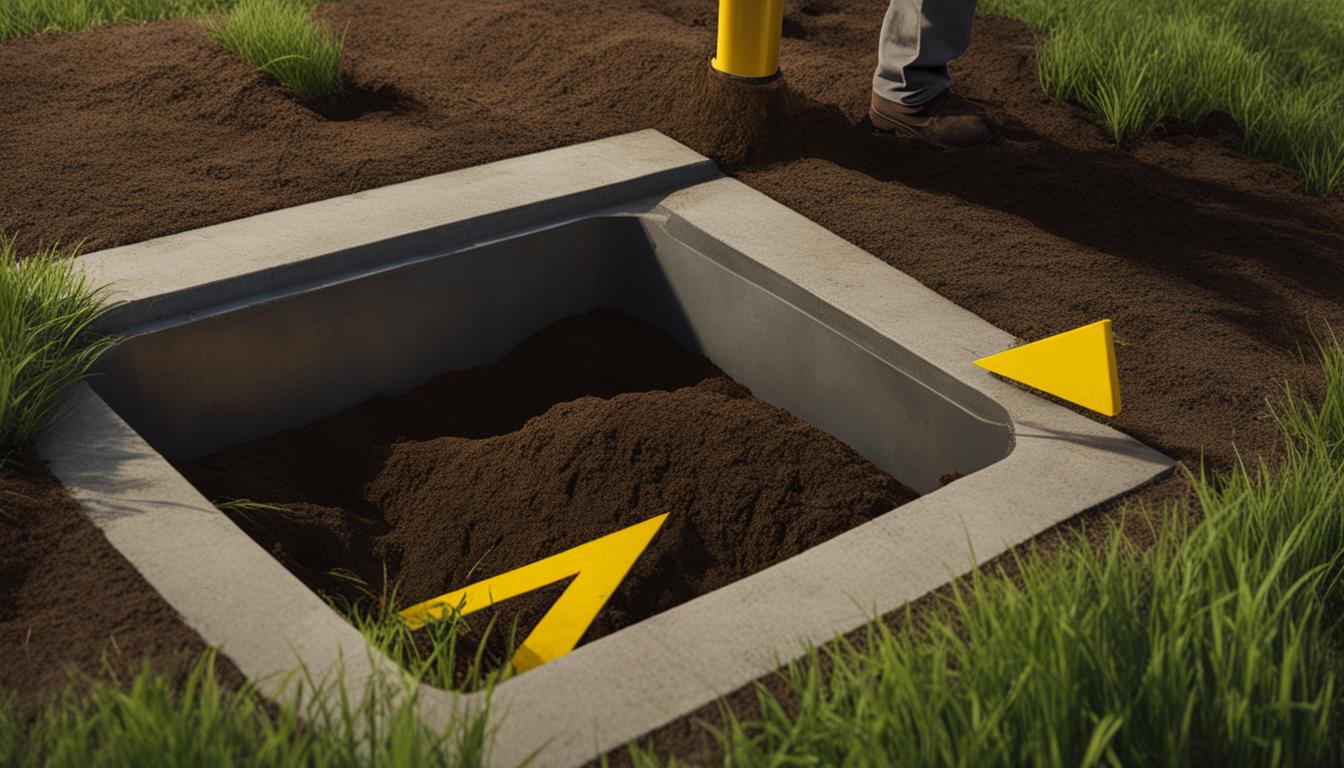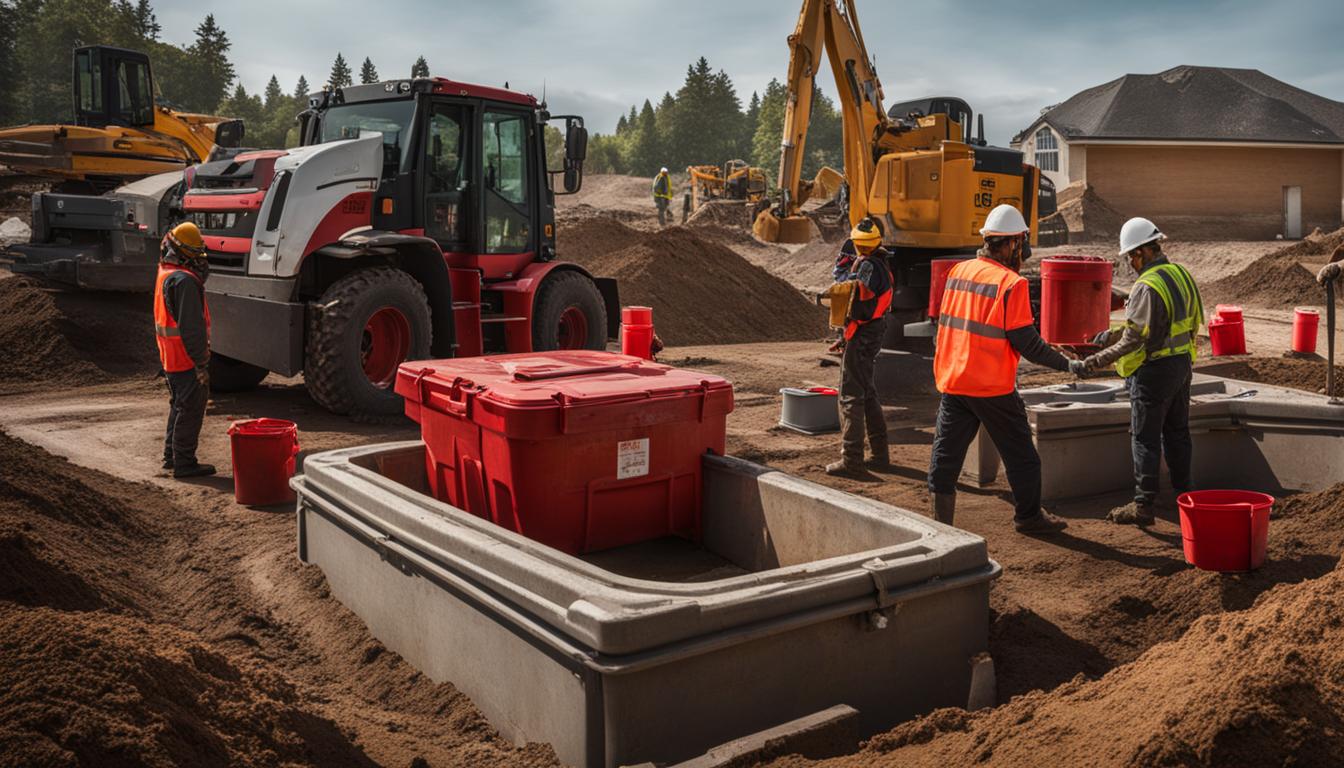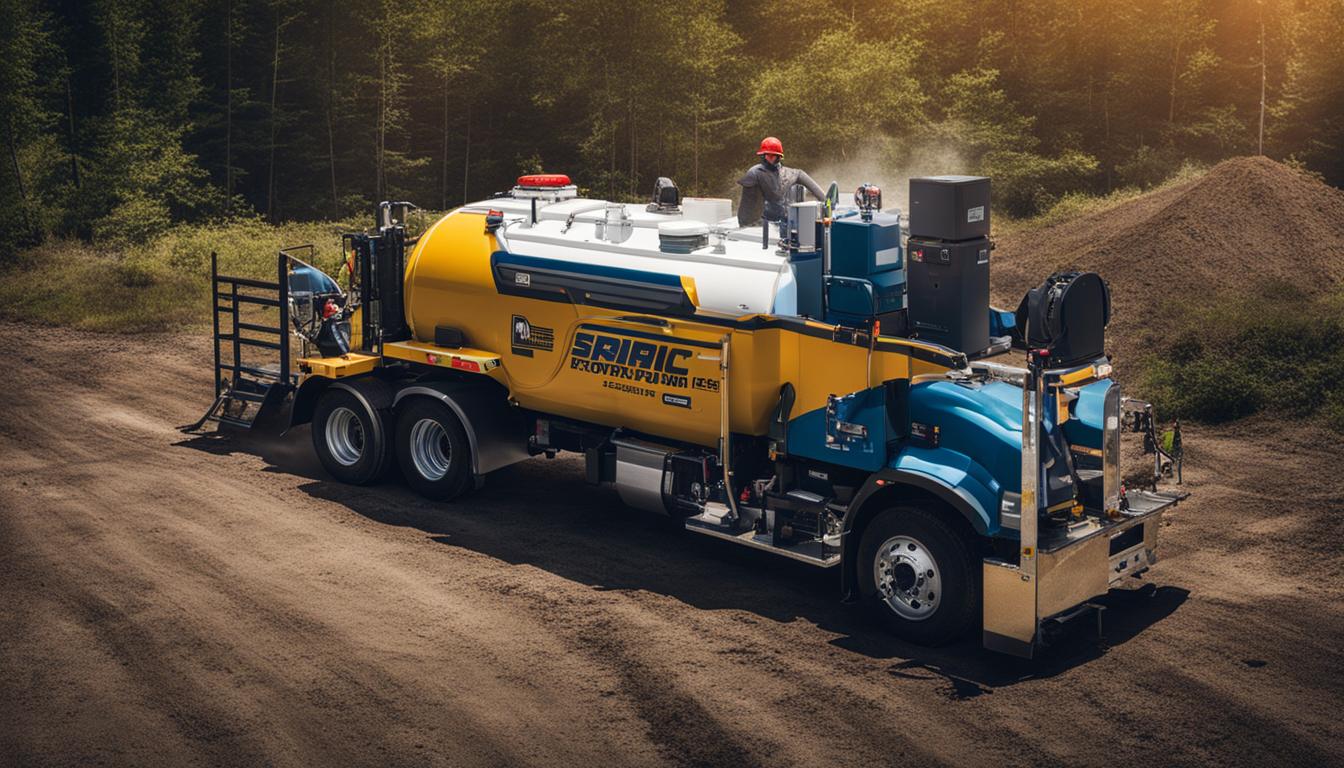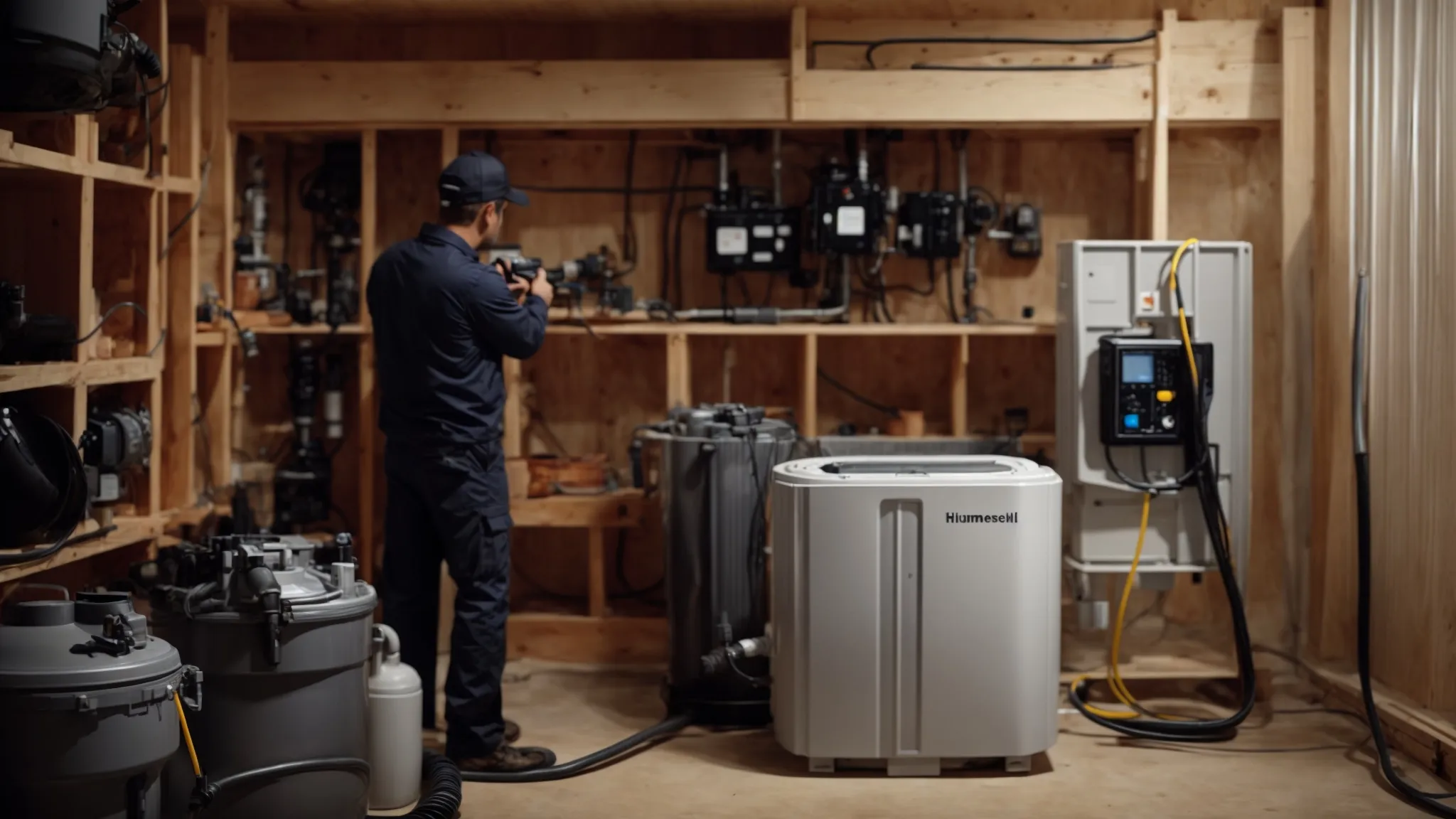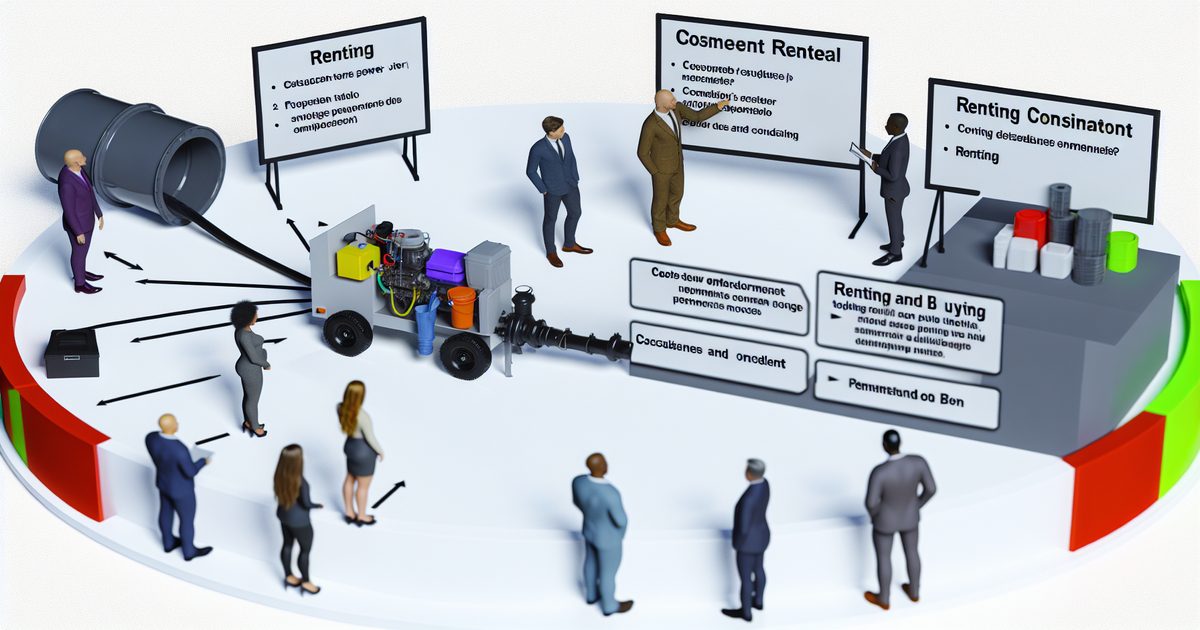As a homeowner, it’s easy to overlook routine maintenance tasks for your septic system. However, neglecting your septic system can result in costly damages and repairs. One of the most important aspects of septic system maintenance is recognizing when urgent pumping is required.
Urgent pumping refers to the immediate removal of excess waste in your septic tank. By recognizing the signs of needing urgent septic pumping, you can prevent potential damage to your septic system and avoid costly repairs.
Key Takeaways:
- Understanding the signs of needing urgent septic pumping is crucial for maintaining the health and functionality of your septic system.
- Neglecting your septic system can lead to costly damages and repairs.
- By recognizing the signs of needing urgent septic pumping, you can prevent potential damage to your septic system and avoid costly repairs.
- Knowing the importance of routine septic maintenance can help prevent the need for urgent pumping.
- If you suspect any issues with your septic system, consult a professional immediately.
Understanding Your Septic System
As homeowners, we rely on our septic systems to function properly, but do we really understand how they work? A septic system is an underground wastewater treatment system that is responsible for removing waste from our homes. It consists of a septic tank and a drain field, and it requires regular maintenance to prevent problems.
The septic tank is the first point of contact for the wastewater from our homes. It’s a watertight container typically made of concrete, fiberglass, or polyethylene. The wastewater enters the tank, and the solids settle to the bottom, while the oils and grease float to the top, forming a scum layer. The remaining wastewater exits the tank and enters the drain field, where it’s purified before returning to the groundwater system.
Understanding your septic system is crucial to maintaining its longevity and avoiding costly repairs. Regular pumping, which involves removing the solids and scum layer from the tank, is essential to keep your system running smoothly. We strongly recommend pumping your septic tank every three to five years, depending on the size of your tank and the number of people in your household.
The Importance of a Comprehensive Guide to Your Septic System
A comprehensive guide to your septic system is an essential tool for every homeowner. It provides helpful information on maintaining your system, from pumping schedules to best practices for flushing household items. A comprehensive guide can also educate you on the costs associated with repairs or replacements, as well as provide tips for reducing your water usage to avoid overloading your system.
Maintaining your septic system is a responsibility that comes with homeownership, but it doesn’t have to be stressful. With a basic understanding of how your system works and the right maintenance routine, you can ensure that your septic system remains healthy and functioning for years to come.
Routine Septic Maintenance
Regular septic maintenance is essential for maintaining the proper functioning of your septic system. We recommend scheduling routine maintenance at least once every three years for a conventional system and annually for alternative systems, including aerobic treatment units, sand filters, and mound systems. Failing to maintain your septic system can lead to costly damages and repairs.
What does Routine Septic Maintenance Entail?
Routine septic maintenance involves a thorough inspection of the system and cleaning of the tank and other components. During this process, we will:
- Measure the scum and sludge layers
- Inspect the tank for cracks and leaks
- Check the inlet and outlet baffles and tees
- Examine the drain field for signs of failure
After completing the inspection, we will pump the tank to remove the accumulated scum and sludge layers. Properly disposing of the waste is a crucial aspect of septic maintenance. Ensure that the contractor you hire follows proper waste disposal protocols.
Why is Routine Septic Maintenance Important?
Regular septic maintenance can prevent costly repairs and extend the lifespan of your system. Neglecting routine maintenance can lead to a buildup of solids in the tank, which can clog the drain field and cause sewage backups in your home. It can also lead to the failure of the drain field, which can result in costly repairs.
Routine septic maintenance can also help you identify potential issues before they become significant problems. Early detection of issues can save you money and prevent damage to your septic system.
How to Maintain Your Septic System Between Inspections
In addition to routine maintenance, there are a few steps you can take to keep your septic system functioning properly:
- Conserve water to avoid overloading the system
- Do not dispose of non-biodegradable items in your toilet or drains
- Avoid pouring hazardous chemicals down your drains
- Have your system inspected by a professional before conducting any landscaping or construction near the septic system
By following these basic tips and hiring a professional for regular septic maintenance, you can avoid costly repairs and ensure the health and proper functioning of your septic system.
Slow Drains and Backups
Slow drains and backups are common indicators that your septic system may be in need of pumping. When wastewater cannot flow properly through your pipes, it can result in slow drains and backups, which can be inconvenient and unsanitary.
The cause of slow drains and backups can vary, but it is often due to a buildup of solids in your septic tank. When the tank becomes full, solids can escape into your drain field, causing clogs and backups.
The Dangers of Neglecting Slow Drains and Backups
Ignoring slow drains and backups can lead to serious problems with your septic system. If left untreated, clogs can cause wastewater to back up into your home, creating a hazardous and unsanitary environment. Additionally, backups can cause damage to your pipes, leading to costly repairs.
It’s important to address slow drains and backups promptly to avoid these potential dangers. By recognizing these signs and scheduling regular septic pumping, you can prevent the need for emergency repairs and ensure the proper functioning of your septic system.
Foul Odors: Is it Time to Schedule Septic Pumping?
Unpleasant, lingering odors around your septic system are a clear sign that something isn’t working as it should. Ignoring these odors can lead to costly damage and repairs. In this section, we will explore why these odors occur and what to do when they become a problem.
Possible causes of foul odors
There are many reasons why your septic system may produce unpleasant odors. Some of the most common causes include:
- Blocked or clogged pipes
- Damage to the septic tank or drain field
- Improperly functioning septic system
- Incorrect tank size for household usage
- Overfilled tank
If you notice any of these issues, it is important to schedule septic pumping as soon as possible to prevent further damage to the system.
Eliminating foul odors
To eliminate foul odors coming from your septic system, it is important to first determine the root cause of the problem. Some possible solutions include:
- Adding bacteria to the system to help break down waste
- Cleaning out the septic tank to remove buildup and blockages
- Repairing damage to the septic system
- Increasing the size of the septic tank if it is too small for your household usage.
It is important to consult a professional to determine the best course of action for your specific situation.
Preventing future foul odors
The best way to prevent foul odors from occurring in the future is by implementing routine septic maintenance. This includes:
- Scheduling regular septic pumping every three to five years, or more frequently if recommended by a professional
- Being mindful of what gets flushed down drains and toilets, including avoiding flushing non-biodegradable items
- Using septic-safe cleaning products
- Regularly inspecting the system for any signs of damage or blockages
By following these simple steps, you can help prevent future foul odors and ensure the longevity of your septic system.
Standing Water or Wet Areas
Standing water or wet areas around your septic tank or drain field are significant signs of a failing septic system. If you notice these signs, it’s important to take immediate action.
One of the main causes of standing water or wet areas is an overloaded drain field. This occurs when the wastewater cannot properly drain through the soil, causing it to pool on the surface. Other potential causes include a damaged septic tank or a clogged drain field.
| Signs of Standing Water or Wet Areas | Possible Causes |
|---|---|
| Water pooling on the ground above the drain field | Overloaded drain field |
| Sewage odors near the drain field | Failed drain field |
| Wet spots around the septic tank | Damaged septic tank |
Ignoring standing water or wet areas can lead to significant damage to your septic system and your property. If you suspect any issues, it’s crucial to contact a septic system professional to investigate the problem and provide prompt pumping services.
Gurgling Sounds: Investigating the Signs of Urgent Septic Pumping
As we discussed in earlier sections, being able to recognize the signs of an urgently needed septic pumping can save you from costly damages and system failures. One of the signs of septic system trouble that often goes unnoticed is gurgling sounds in your drains or toilet.
What are gurgling sounds?
Gurgling sounds are created when air is trapped in your plumbing pipes. This can be caused by a variety of issues, such as a clogged drain, blocked vent pipe, or a malfunctioning septic system. The gurgling sound is often described as a glugging noise, indicating that your septic system needs immediate attention.
Causes of gurgling sounds
There are several reasons why you might hear gurgling sounds coming from your plumbing:
| Cause | Description |
|---|---|
| Clogged Drain | A blockage in your drain can cause air to be trapped, resulting in gurgling sounds. |
| Blocked Vent Pipe | The vent pipe allows air to escape from your plumbing system. If it is blocked, air can be trapped and create gurgling sounds. |
| Malfunctioning Septic System | A septic system that is not functioning properly can cause air to be trapped and create gurgling sounds. |
It’s important to note that gurgling sounds may not always be accompanied by other signs of septic system failure. Therefore, it’s crucial to have a regular septic maintenance schedule.
What to do if you hear gurgling sounds?
If you hear gurgling sounds in your plumbing, it’s essential to take immediate action. Some potential steps that you might take are:
- Check for any clogs in your drains or toilets and clear them if necessary.
- Inspect your vent pipe to ensure it’s not blocked.
- Contact a professional septic service provider to inspect your septic system and diagnose any potential problems.
Ignoring gurgling sounds can lead to more severe septic system issues, such as backups and overflows. Regular septic maintenance can help prevent such problems and keep your system functioning correctly.
Excessive Grease and Scum Buildup
Excessive grease and scum buildup are common issues that can lead to clogs and backups in your septic system. This can happen when oils, fats, and grease (also known as FOG) are not properly disposed of and instead, make their way into your septic tank. These substances can float to the top and form a scum layer that traps other solids and can block pipes or cause backups.
Note: It is essential to avoid pouring cooking oils, fats, and grease down the drain. Instead, dispose of them in the trash or recycle.
It’s important to note that an excessive buildup of grease and scum can also interfere with the proper functioning of your system’s bacteria. These bacteria are responsible for breaking down solid waste in your septic tank, and if they are unable to perform their job correctly, it can lead to bigger problems.
If left unaddressed, the excessive buildup of grease and scum can eventually cause your septic system to fail. This can result in costly repairs and replacements. To prevent this, regular pumping is necessary to remove the scum layer and maintain a healthy balance of bacteria in your system.
| Signs of Excessive Grease and Scum Buildup | Actions to Take |
|---|---|
| Slow drains or backups in sinks, toilets, or showers | Contact a professional septic service to perform a thorough cleaning and pumping, and avoid pouring FOG down the drain. |
| Unpleasant odors coming from drains or the drain field | Call a professional septic service to investigate the cause and perform necessary cleaning and pumping |
| Scum and grease buildup visible in the septic tank or near the outlet filter | Contact a professional septic service to pump and clean the tank to avoid blockages and backups. |
We cannot stress enough the importance of proper waste disposal and routine maintenance to avoid excessive grease and scum buildup.
Unexplained Health Issues
If you have been experiencing persistent health issues such as stomachaches, respiratory problems, or unexplained skin irritation, it may be worth investigating your septic system as a potential cause.
When a septic system begins to fail, it can release harmful bacteria and other contaminants into the environment, which can be detrimental to human health. In addition, the buildup of sewage gases can cause health problems ranging from headaches and nausea to dizziness and fatigue.
It is important to take any potential health concerns seriously and to have your septic system checked by a professional. By addressing any issues with your septic system promptly, you can help ensure the health and safety of you and your family.
Conclusion
In conclusion, recognizing the signs of needing urgent septic pumping is crucial for the proper maintenance of your septic system. By addressing these signs promptly, you can prevent potential damage and costly repairs in the future. Remember that routine septic maintenance is also essential for ensuring the longevity and functionality of your septic system. Regular cleaning and pumping can help prevent the need for urgent pumping and keep your system running smoothly. If you suspect any issues with your septic system, don’t hesitate to consult a professional for assistance.
FAQ
What are the signs that indicate the need for urgent septic pumping?
Signs that indicate the need for urgent septic pumping include slow drains, backups, foul odors, standing water or wet areas, gurgling sounds, excessive grease and scum buildup, and unexplained health issues.
Why is it important to have a basic understanding of your septic system?
Understanding your septic system helps you recognize signs of potential issues and enables you to take timely action to prevent damage. It also allows you to communicate effectively with professionals and make informed decisions regarding septic maintenance.
How does routine septic maintenance help prevent the need for urgent pumping?
Regular septic maintenance, including inspections and tank pumping, helps maintain the proper functioning of your septic system. Routine maintenance removes accumulated solids, reducing the risk of backups and other issues that may require urgent pumping.
What causes slow drains and backups in a septic system?
Slow drains and backups in a septic system can be caused by excessive solids in the tank, a clogged drain field, or a malfunctioning pump. These issues often indicate a need for septic pumping to remove accumulated solids and restore proper system functionality.
Why do foul odors occur in a septic system?
Foul odors in a septic system are usually caused by a build-up of anaerobic bacteria that break down waste. When the system is overloaded or blocked, the bacteria produce hydrogen sulfide gas, resulting in foul odors. Pumping the septic tank can help eliminate these odors.
What does standing water or wet areas around the septic tank indicate?
Standing water or wet areas around the septic tank or drain field typically indicate a septic system failure. This can occur due to a clogged drain field or a malfunctioning septic tank. Urgent septic pumping is necessary to resolve the issue and prevent further damage.
Why do gurgling sounds occur in the drains or toilet?
Gurgling sounds in the drains or toilet can be caused by a blockage or backup in the septic system. When the system is unable to handle the wastewater flow properly, air bubbles can form, resulting in gurgling sounds. Septic pumping can help alleviate this issue.
What problems can excessive grease and scum buildup cause in a septic system?
Excessive grease and scum buildup in a septic system can lead to clogs and backups, obstructing the flow of wastewater. This can cause damage to the septic tank, drain field, or even plumbing fixtures. Prompt septic pumping is necessary to prevent these issues.
How are unexplained health issues related to a malfunctioning septic system?
A malfunctioning septic system can release harmful pathogens and gases into the air and water, potentially causing health problems. If you experience persistent stomachaches, respiratory issues, or other unexplained health issues, it is important to consider the condition of your septic system and seek professional assistance if needed.
What are the benefits of addressing signs of needing urgent septic pumping promptly?
Addressing signs of needing urgent septic pumping promptly can prevent costly damage to your septic system, reduce the risk of backups and health hazards, and prolong the lifespan of your septic system. Consult a professional if you suspect any issues with your septic system to ensure proper maintenance and functionality.
